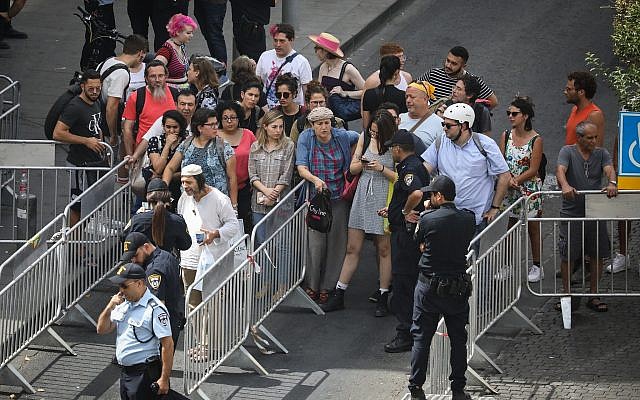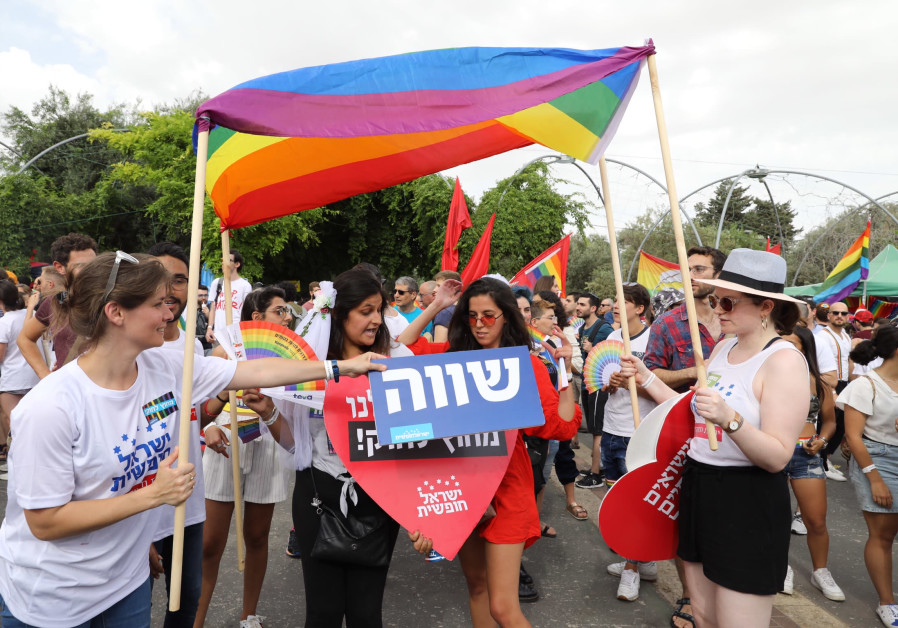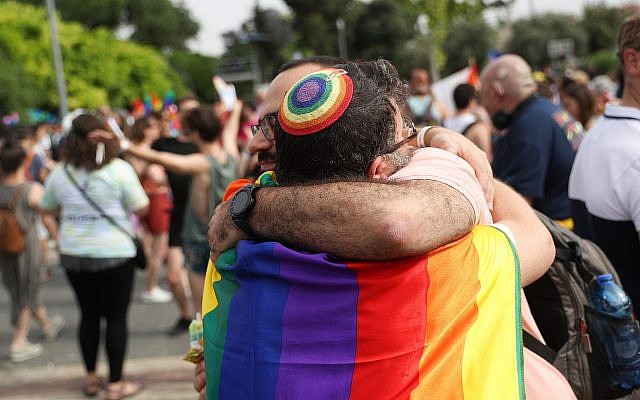Arrests, Protests and More Security at Pride Parade
Jerusalemites, Israelis and foreigners chanted for equality and held vibrant posters advocating LGBTQ rights at 18th annual Jerusalem March for Pride and Tolerance.
Jerusalemites, Israelis and foreigners chanted for equality and held vibrant posters advocating LGBTQ rights at 18th annual Jerusalem March for Pride and Tolerance. This year’s turnout was originally expected to be 30,000 people but it was much lower than in the past. An estimated 10,000 to 15,000 marched from Liberty Bell Park to Independence Park, with more than 2,000 police officers securing the event.
This year’s march had a special meaning because it was the first pride parade of the year in Israel, effectively setting other pride events across the country in motion. Also, this year marks the 50th anniversary of the Stonewall riots in New York, a crucial struggle for LGBTQ rights in the United States and across the world.
Four years ago, Shira Banki was brutally stabbed to death at the march by Orthodox extremist Yishai Schlissel, who also injured many others. Security has been regularly tight around the march since Banki’s death. Now, pride participants are required to wear entry bracelets as a new crowd control initiative.

At the march, 52 people were arrested or detained for attempting to disturb the event and parade. Police surrounded the route and for the first time, asked those joining the march who seemed suspicious to provide identification before being allowed to enter. One suspect was arrested with a knife and another with pepper spray.
Banki’s father, Uri, was at the march and told reporters he was there to show support for the event’s message. “We are marching today in memory of Shira and also to support tolerance in Israel,” he said. “Tolerance is something that is easy for us to demand from others and much harder to sustain ourselves.”
Despite the seriousness of the security, the atmosphere in the park was cheerful, with colorful flags waving in the air, upbeat music and food. Multiple organizations distributed free rainbow gear and informational brochures.
Many pride participants chanted “Bibi, Bibi, wake up” and “We are here to stay,” which was as much political as pride-related. A demonstration against the march was held nearby by the right-wing extremist Lehav organization. Police outnumbered the 150 or so protesters three to one. However, a group of religious LGBTQ Jews danced around in circles along with songs playing about the Messiah.
“We need freedom, the freedom to be who we are. Equality is needed for everyone, specifically in Jerusalem,” said Eitan Ginzburg, who was elected mayor of Ra’anana in 2018, the first openly gay person to serve as mayor in Israel.
Also attending the march was the recently appointed interim justice minister, Amir Ohana, the first openly gay cabinet member in the country’s history. Ohana’s presence was not received well by other pride-goers. Participants booed and chanted “embarrassment” at him as he marched the event.
“As a liberal who believes wholeheartedly in freedom of expression, I told the same group of protesters protesting against me, neither ultra-Orthodox nor religious, that it was important that they came there. I just hope that this did not overshadow the main message that should emerge from this event. It does not matter whether you are religious, secular, rightist, leftist, LGBT or not – the message is a message of tolerance,” Ohana said.

“It’s important to understand that the march is a way for us to demonstrate that we have the right to march freely and happily in the street, but also every day in the streets of Jerusalem,” said Ofer Erez, the executive director of the Jerusalem Open House, which organizes the parade every year.
Luckily, this year there were no violent incidents and pride participants could march freely and peacefully down the streets of Jerusalem.
Compiled by AJT Staff




comments